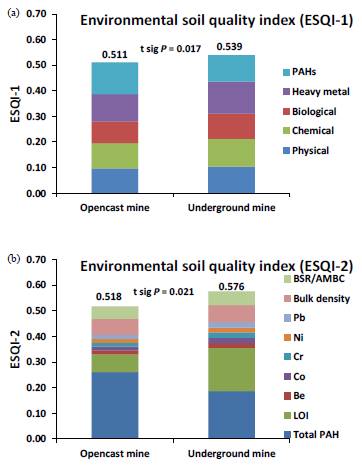Words on Wednesday aims at promoting interesting/fun/exciting publications on topics related to Energy, Resources and the Environment. If you would like to be featured on WoW, please send us a link of the paper, or your own post, at ERE.Matters@gmail.com.
***
Masto, R. E., Sheik, S., Nehru, G., Selvi, V. A., George, J., and Ram, L. C.: Environmental soil quality index and indicators for a coal mining soil, Solid Earth Discuss., 7, 617-638, doi:10.5194/sed-7-617-2015, 2015
Abstract:
Assessment of soil quality is one of the key parameters for evaluation of environmental contamination in the mining ecosystem. To investigate the effect of coal mining on soil quality, opencast and underground mining sites were selected in the Raniganj Coafield area, India. The physical, chemical, biological parameters, heavy metals, and PAHs contents of the soils were evaluated. Soil dehydrogenase (+79%) and fluorescein (+32%) activities were significantly higher in underground mine (UGM) soil, whereas peroxidase activity (+57%) was higher in opencast mine (OCM) soil. Content of As, Be, Co, Cr, Cu, Mn, Ni, and Pb was significantly higher in OCM soil, whereas, Cd was higher in UGM. In general, the PAHs contents were higher in UGM soils probably due to the natural coal burning in these sites. The observed values for the above properties were converted into a unit less score (0–1.00) and the scores were integrated into environmental soil quality index (ESQI). In the unscreened index (ESQI-1) all the soil parameters were included and the results showed that the quality of the soil was better for UGM (0.539) than the OCM (0.511) soils. Principal component analysis was employed to derive ESQI-2 and accordingly, total PAHs, loss on ignition, bulk density, Be, Co, Cr, Ni, Pb, and microbial quotient (respiration: microbial biomass ratio) were found to be the most critical properties. The ESQI-2 was also higher for soils near UGM (+10.1%). The proposed ESQI may be employed to monitor soil quality changes due to anthropogenic interventions.

